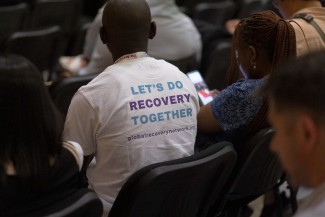HOW EMPOWERMENT BENEFITS RECOVERY

In recovery work, the urge to "fix" can often overshadow the real goal: empowering autonomy. As a recovery ally, I’ve learned that sustainable healing happens when we honour the individual’s journey and not impose our values on it. True support means guiding without controlling, encouraging growth, resilience, and self-determination. A better path to sustainable recovery requires extensive support and not fixing the recovery process.
The tempting instinct to correct or advise does not work well for recovery; in fact, it can unintentionally disempower. Whether you are a therapist, coach, peer, or family member, it is vital to replace fixing with empathy, curiosity, and collaborative support.
Recovery is possible - it emerges from different pathways, and it looks different for everyone.
The Recovery support journey should be supportive, one that helps those in recovery to identify and manage challenges, one that encourages healthy coping strategies, one that is strength-based, allowing community, and lastly, one that honours each individual’s unique path toward wellness.
How do you foster autonomy in the recovery journeys you support?